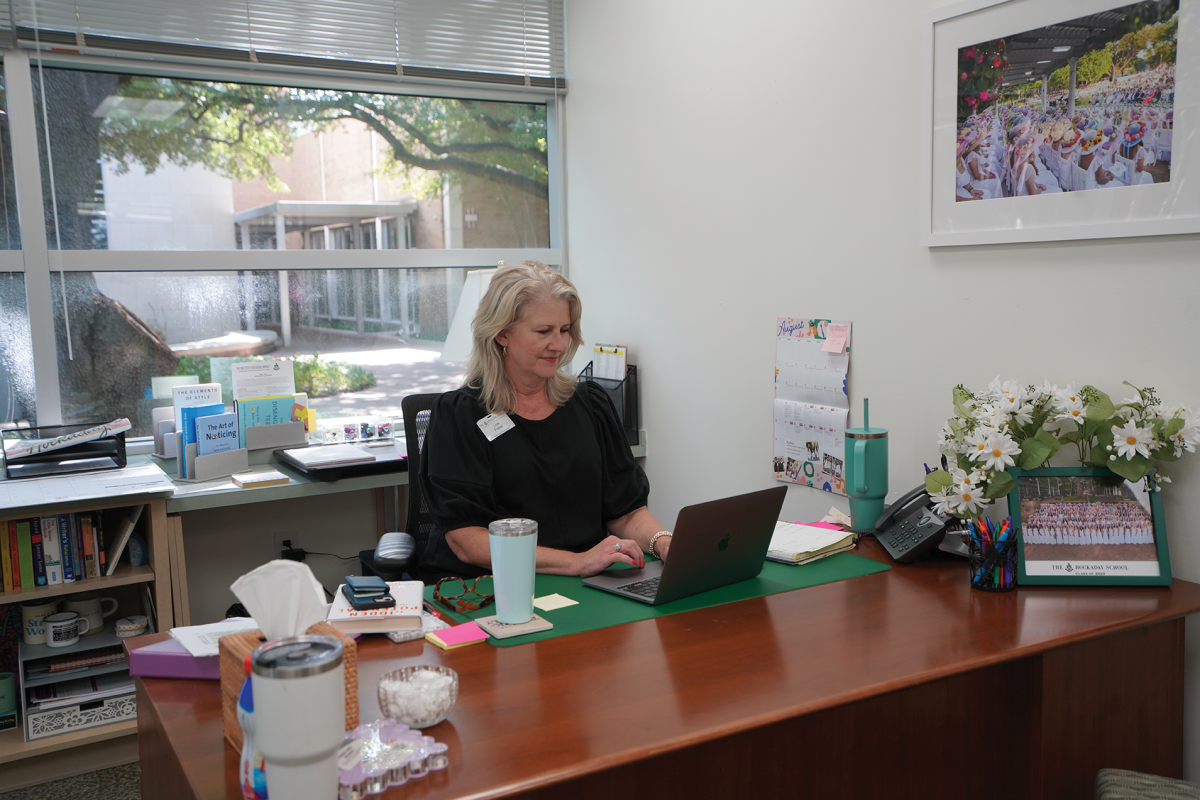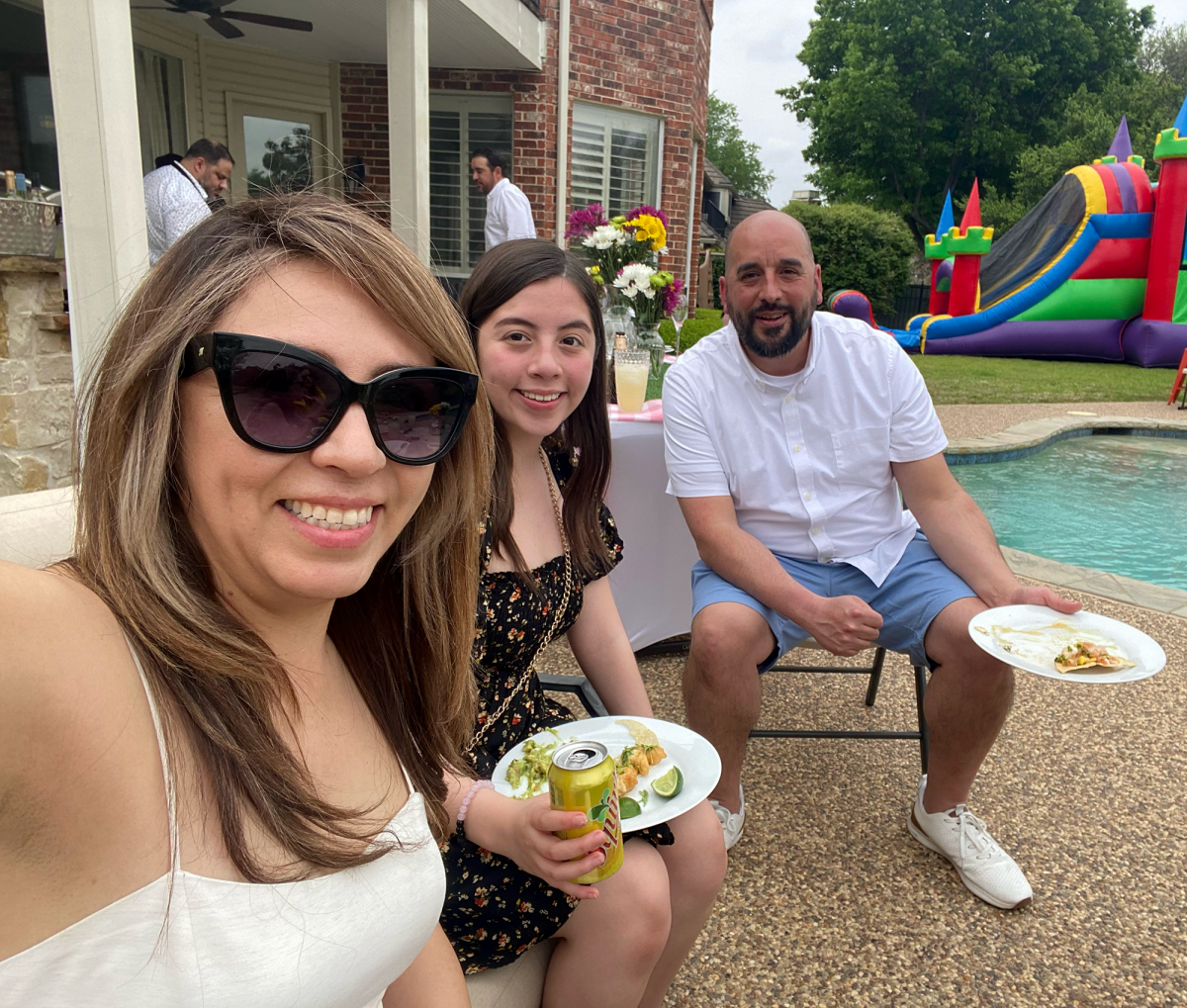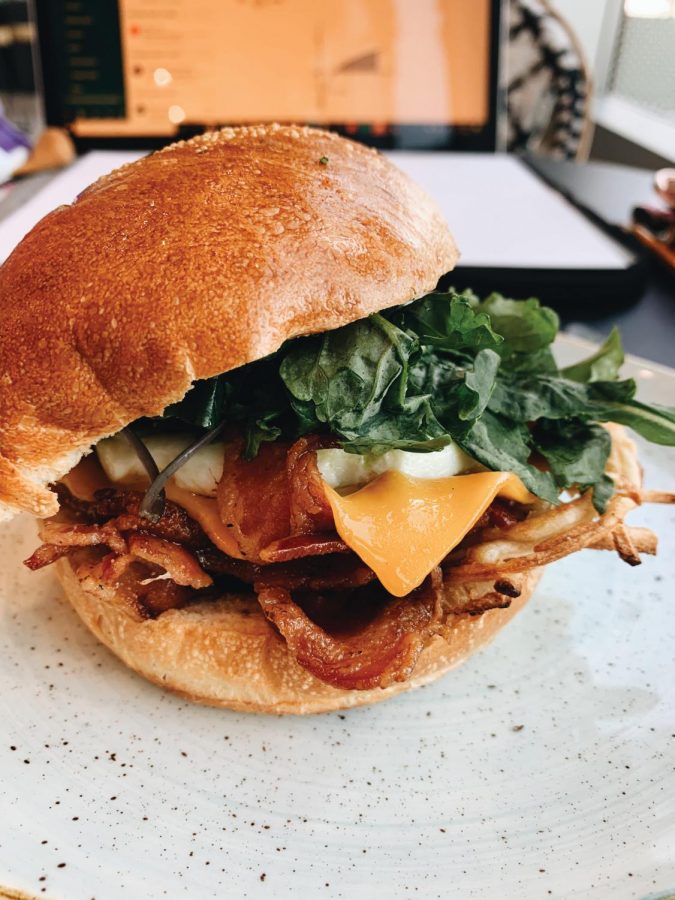We take food so seriously during the holiday season that the holidays hardly exist in our imagination without the smell of something along the lines of hot chocolate or roasted chicken. But besides filling our stomachs, we also have the habit of stuffing our schedules with as many holiday-related activities as our festive spirit can muster. On top of everything you probably have on your plate right now—literally or metaphorically—here’s something else I’d say you should take the time to add: The Sporkful.
The Sporkful is a podcast—yes, you heard me correctly—about food. At this point, you might be understandably confused, as I was when I first heard about The Sporkful. How is it that somebody might choose a podcast as their medium to talk about food, when food depends so much on visual stimulation? Do I really want to hear about what’s on my plate without seeing it? These questions, and my love for food, ultimately drew me to listen to the podcast. The series can be easily streamed on Spotify free of charge.
Creator and host of The Sporkful Dan Pashman was here to answer my concerns as soon as I clicked play. “This is The Sporkful. It’s not for foodies, it’s for eaters,” Pashman says at the beginning of each episode. “Each week on our show we obsess about food to learn more about people.”
That’s right. As much as Pashman and I share a passion for food, we stuck around on both ends of The Sporkful for the people.
The first episode of the podcast series that I chose to listen to was titled “The Food Guilt Remediation Project.” In this episode, Pashman discusses his guilt about food waste and explores three solutions with which he can remediate that guilt.
Throughout the episode, I’ve truly come to understand how The Sporkful is made for eaters. We all eat, and whether we can help it or not, we waste food. We’ve all felt guilty about leaving something untouched on the plate. It is this shared experience of eaters that Pashman effectively exploits in his podcast.
Although I am no cook, nor do I have no burning curiosity towards composting, Pashman’s humor allowed me to sit through all 31 minutes of the episode. His jokes made the content genuinely enjoyable and left me wanting more. His interviews are also well done and interest- ing, ranging from his neighbor John to Harvard Professor Emily Broad Leib.
Throughout the entirety of the episode, The Sporkful struck me as not only genuinely entertaining, but educational. I was able to learn a lot about the foods that I’m eating and how to reduce food waste to show Mother Earth a little more love as an eater. Oh, and did you know that food expiration dates are not federally regulated at all?
Besides episodes like “The Food Guilt Remediation Project” where Pashman takes his listeners along with him on food-related endeavors, The Sporkful mostly features episodes where Pashman sits down with somebody and interviews them about their experiences with food.
Drawn by the title, I clicked on “The Pasta That Won Obama Re-Election” next. Despite its proud name, the episode is a little disappointing. In this feature, Pashman interviews Sam Kass, personal chef of the Obama family-turned-Senior White House Advisor, on the topic of nutrition.
Pashman tries too hard to play up what the title promised, and his comments sometimes overshadow his guest. On some instances, he asks demanding questions, making Kass seem slightly uncomfortable as he tries to answer things, like whether he smuggled ingredients into the White House. Although Kass only discusses the topic briefly, the episode’s description boasts that Kass “gives us a sneak peek into how he smuggled special ingredients in to the White House.”
While the episode included many click- baits, the content itself was nonetheless enjoyable. Besides, I didn’t find the same flaws in the podcast’s Ask Mimi series, in which Pashman interviews renowned food critic Mimi Sheraton. With Pashman and Sheraton both being knowledgeable and genuinely humorous, the Ask Mimi series are some of my favorite The Sporkful episodes.
Another highlight of the podcast is the discussions about body image and masculinity in “Michael Ian Black is a Man Who Eats Salads,” where Pashman effectively explores an important and relevant topic for eaters in a light-hearted, enjoyable way. Driving through Los Angeles traffic during Thanksgiving break, my family and I had many good laughs listening to the podcast.
This brings us to one of the best things about The Sporkful—that it is a podcast. Pash- man allows his listeners to experience food without seeing, tasting or smelling, anytime or anywhere during the day. He makes food about people, and that, in my opinion, is what the holidays are about.
So this holiday season, get your plate out and dig into The Sporkful.
Story by Michelle Chen













